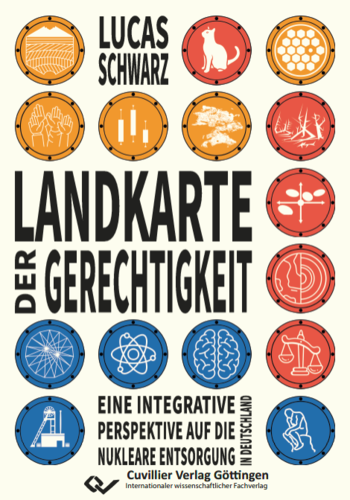Justice in Nuclear Waste Disposal
Lucas Schwarz publishes his doctoral thesis on the handling of highly radioactive waste materials (in german)
News from Aug 12, 2024
In Germany, nuclear energy is a technology that evokes strong emotional reactions. The arguments in for and against its use range from low-emission and continuous energy generation to the local effects of uranium mining, health risks and unresolved technical challenges. Despite the phase-out of commercial nuclear energy in April 2023, one pressing issue remains: the safe disposal of highly radioactive waste.
According to the Site Selection Act in Germany, storage must be safe for one million years. This immense period of time will cover the lifespan of people who have not produced these residues, but who will potentially have to live with the effects of disposal. The question therefore arises as to whether it is even possible to speak of just behavior in relation to highly radioactive waste.
In order to approach this question, a comprehensive literature review on the theoretical foundations, contemporary theories and dimensions of justice was conducted in this thesis. Most research focuses on universal theories of justice that are supposed to apply to all people and at all times. In order to gain new insights, Bruno Latour's 'existential two' approach was used, which opens up a previously unused and individual perspective that deviates from the previous paradigms of justice research. Two quantitative surveys were carried out to provide an empirical foundation: Firstly, a baseline study to investigate general aspects of perceptions of justice, and secondly, an in-depth study in which the perceived justice of nuclear waste disposal was investigated using concrete, fictitious vignettes.
Schwarz, Lucas (2024): Landkarte der Gerechtigkeit - eine integrative Perspektive auf die nukleare Entsorgung in Deutschland. Cuvillier: Göttingen. ISBN:9783689520335
